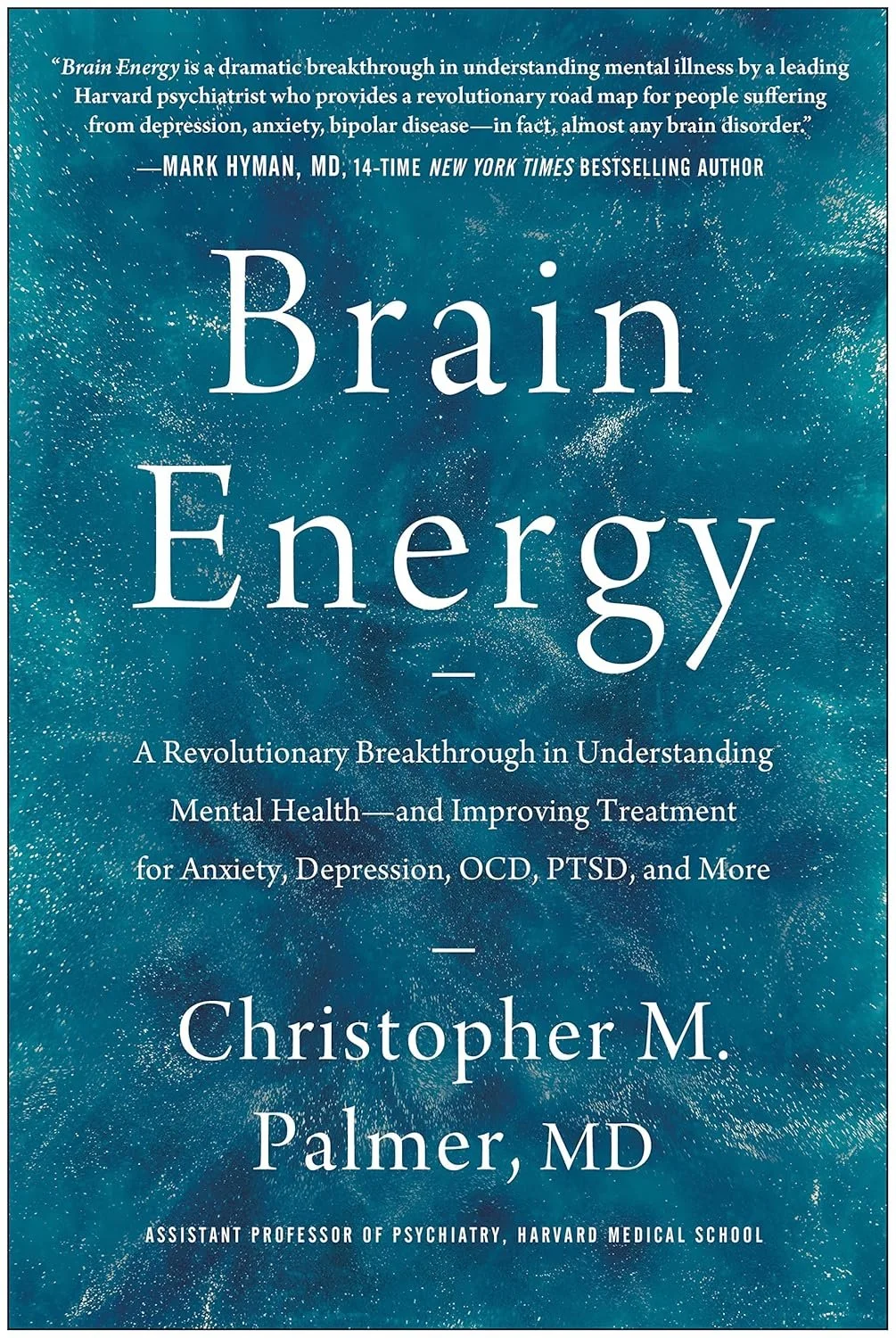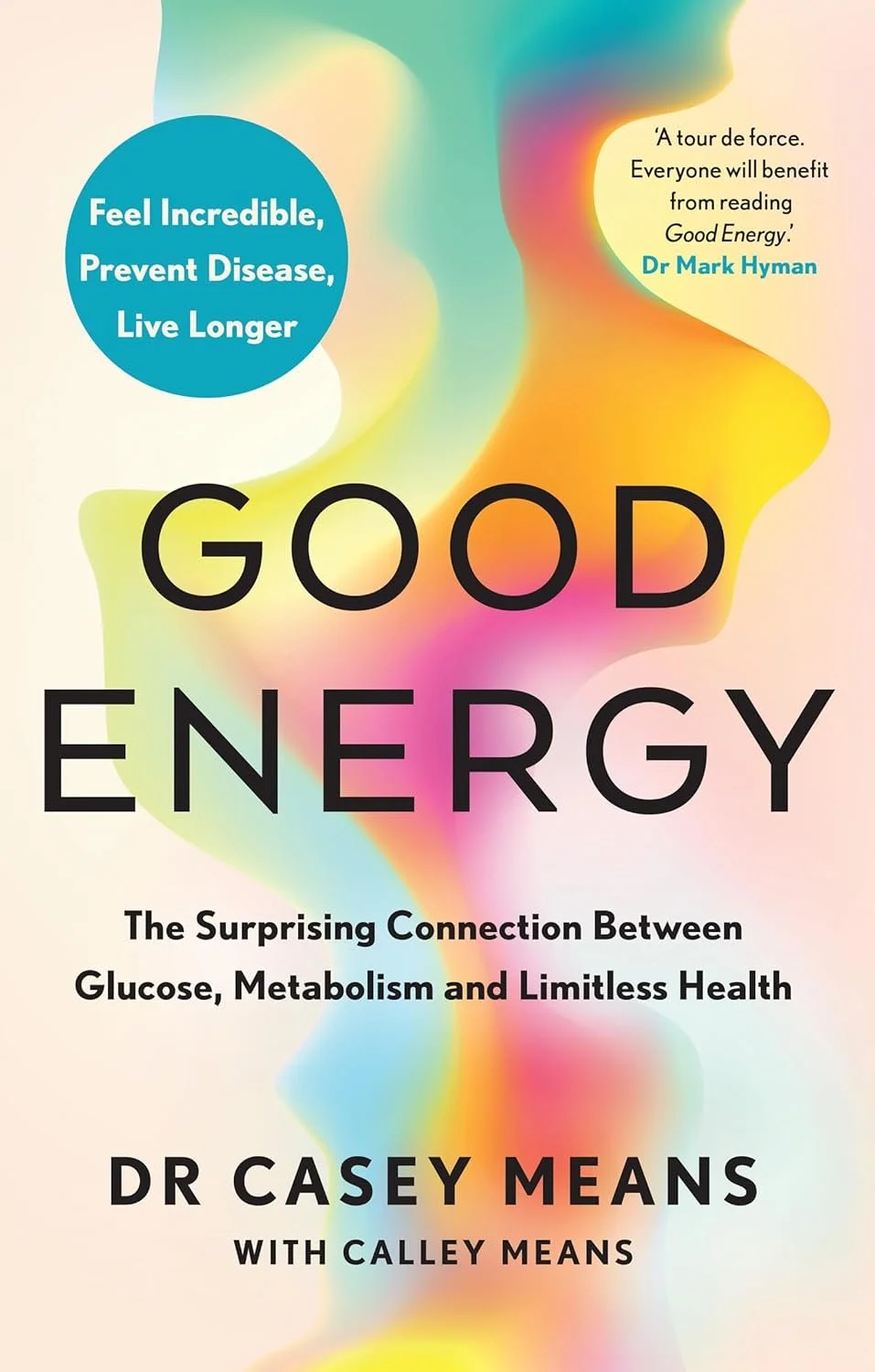Resources
The resources below reflect ideas and research that have influenced my thinking around brain health, metabolism, and nervous system regulation. Clients do not need to read or follow any of these to benefit from the work — they are shared purely for those who enjoy exploring ideas more deeply.
Ketogenic Metabolic Therapy (KMT)
Below you will find some of the key researchers and psychiatrists in the exciting field of KMT as well as links to relevant podcasts and books
Podcasts and Youtube
-

Metabolic Mind
-

Metabolic Link
-

Living Well After Schizophrenia
-

Keto Bipolar
Books
Research Papers
The field metabolic therapies for brain health is an exciting new paradigm. While large-scale randomised controlled trials are still in progress or awaiting completion, the smaller studies and pilot trials conducted so far frequently demonstrate significant benefits across a range of conditions. These findings provide promising insights into how interventions such as the ketogenic diet, mitochondrial support, and gut-brain therapies can improve outcomes for various neurological and cognitive challenges. Here is a selection of recent papers.
Ketogenic diet as a metabolic treatment for mental illness
16 Aug 2020 · Nicholas G. Norwitz, S. S. Dalai, Christopher M. Palmer - Current Opinion in Endocrinology & Diabetes and Obesity
This comprehensive review discusses the theory that conditions like schizophrenia, depression, bipolar disorder, and binge eating disorder share common brain and metabolic issues, such as poor glucose use, neurotransmitter imbalances, oxidative stress, and inflammation. They conclude that ketogenic diets can help address these problems and improve symptoms in patients, and the diet offers a promising approach by not just managing symptoms but targeting the root causes of these conditions, potentially improving related health issues as well.
The Therapeutic Role of Ketogenic Diet in Neurological Disorders
1 May 2022 · Diana Pietrzak, Kamila Kasperek, Paweł Rękawek - Nutrients
This comprehensive review found that the ketogenic diet shows potential therapeutic benefits in neurological diseases like epilepsy, depression, migraine, Alzheimer's, and Parkinson's, by controlling neurotransmitter balance, modulating inflammation, and changing gut microbiome composition. They concluded that the KD (ketogenic diet) should be considered as an adjuvant therapeutic option for some neurological diseases.
The Ketogenic Diet for Refractory Mental Illness: A Retrospective Analysis of 31 Inpatients
6 Jul 2022 · Albert Danan, E. Westman, Laura R. Saslow - Frontiers in Psychiatry
In a study involving 31 adults with severe mental illnesses like depression, bipolar disorder, and schizoaffective disorder, participants followed a ketogenic diet with less than 20 grams of carbohydrates daily alongside standard psychiatric care. After 6 to 248 days, significant improvements were seen in depression and psychosis symptoms, with depression scores dropping dramatically. Among those with schizoaffective disorder, psychosis symptoms improved notably. Participants also experienced better metabolic health, including weight loss, improved blood pressure, lower blood sugar, and reduced triglycerides. The ketogenic diet was found to be feasible, well-tolerated, and highly effective for both mental and physical health in this group.
The Relationship of Ketogenic Diet with Neurodegenerative and Psychiatric Diseases: A Scoping Review from Basic Research to Clinical Practice
1 May 2023 · Maria Mentzelou, A. Dakanalis, Georgios K. Vasios - Nutrients
The authors conclude that the ketogenic diet (KD) has many ways of protecting the brain, including reducing inflammation, oxidative stress, and amyloid plaques, promoting neuron repair, and improving gut health and mitochondrial function. These mechanisms suggest KD could help in neurodegenerative and psychiatric conditions. However, the authors go onto say that clinical evidence is still limited, as most studies so far are small, short-term, and lack rigorous controls. To confirm KD's potential benefits, larger, well-designed clinical trials are urgently needed.










